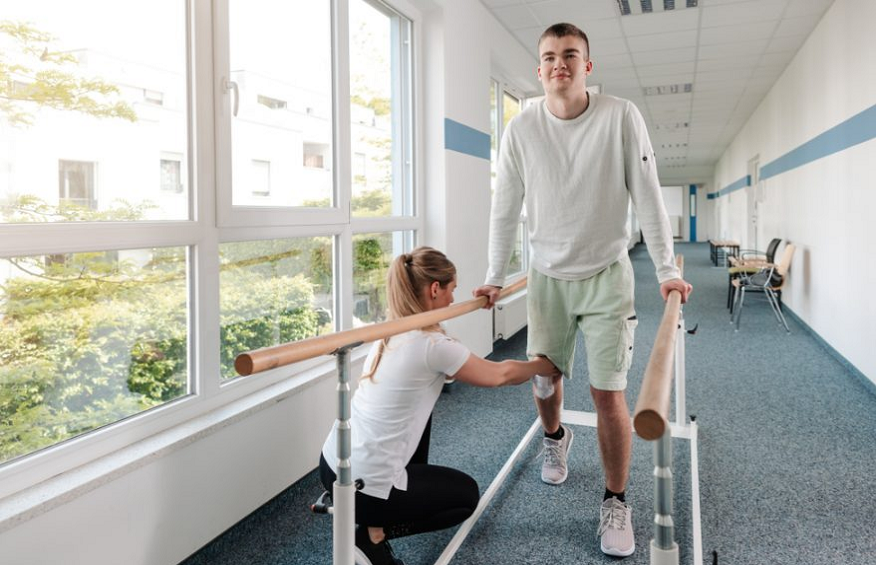Brain and spinal cord injury survivors need to be reintegrated into the community. For this to happen, they will need care and expertise from a post-acute non recovery center. Every brain injury patient is unique and the care provided should be highly specialized and personalized to maximize the quality of life.
Neurological rehab.
Individuals with nervous system injuries, disorders, or diseases go to a doctor-supervised program to seek treatment. Texas neuro rehab center helps to reduce symptoms, improve function, and improve patients’ well-being. The neurological rehabilitation team comprises the following:
1. Physical therapists.
They deal with patients with an injury or disease that contributes to mobility challenges. They help to maintain and restore balance, loss of strength, coordination, gait impairment, or range of motion.
2. Speech-language pathologists.
If a patient has a problem with speech, swallowing, and thinking skills, speech-language pathologists help with the treatment. Loss of speech is common in individuals who suffered from stroke, brain injury, or other nervous system conditions.
3. Neuropsychologists.
They help patients with behavioral and cognitive issues related to nervous system injuries.
4. Occupational therapists.
They help patients to function normally and tackle their daily living activities independently.
5. Therapeutic Recreation Specialists.
They are certified professionals who provide therapeutic and recreational services such as art therapy, swimming, and music therapy. This helps with the patient’s social, emotional, and physical well-being.
Conditions that benefit from neurological rehab.
Texas neuro rehab center helps patients whose nervous system is impaired. The following conditions can be treated at a neurological rehab:
1. Infections such as meningitis, polio, encephalitis, and brain abscesses.
2. Functional disorders such as seizure disorder, neuralgia, headache, and dizziness.
3. Vascular disorders include hemorrhagic strokes, subdural hematoma, ischemic strokes, and transient ischemic attacks.
4. Trauma such as spinal cord and brain injury.
5. Degenerative disorders such as Alzheimer’s disease, multiple sclerosis, Parkinson’s disease, Huntington’s disease, and amyotrophic lateral sclerosis.
6. Neuromuscular or structural disorders include spinal cord or brain tumor, bell palsy, peripheral neuropathy, cervical spondylosis, myasthenia gravis, carpal tunnel syndrome, muscular dystrophy, and Guillain-Barre syndrome.
Neurological rehab program.
Depending on the individual’s condition, rehabilitation programs consist of multiple activities that help to achieve independence and a high level of function. This program provides activities that include:
- Speech therapy for individuals who cannot speak, write, read, or swallow.
- Retraining of the bladder and bowel.
- Help with daily living activities such as cooking, eating, dressing, bathing, basic housekeeping, toileting, and writing.
- Mobility activities include gait training, muscle control, balance, range of motion, coordination, and spasticity management.
- Vocational counseling.
- Management techniques for depression and stress.
- Nutrition counseling and management.
- Pain management.
- Counseling and education of caregiver and patient.
- Retraining behavioral and social skills.
- Activities that improve cognitive impairments for those with attention, concentration, poor judgment, and memory problems.
- Participation in community support groups.
Conclusion.
People with neurological illness, injury, or diagnosis get treatment at neurological rehabilitation centers. The neurological rehabilitation team comprises physical therapists, speech-language pathologists, occupational therapists, therapeutic recreation specialists, and neuropsychologists. Conditions such as degenerative disorders, infections, vascular disorders, trauma, functional disorders, and neuromuscular disorders are treated at Texas neuro rehab. Neurological rehab programs provide different activities that help individuals achieve independence and a high level of function.




